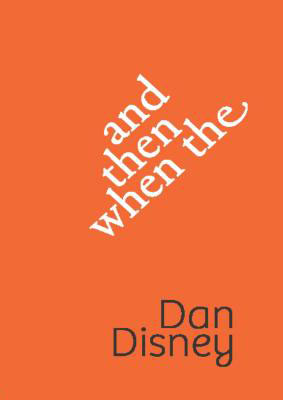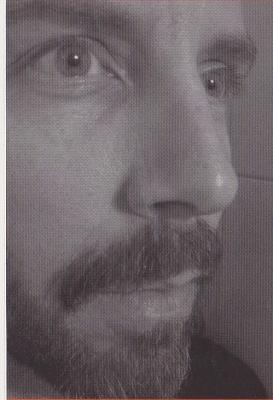And Then When The


Dan Disney

Review
From Geoff Page, The Canberra Times, August 11 2011:Another lively publisher of Australian poetry (and a slightly older one, having begun in 2003) is John Leonard Press in Melbourne. Its latest book also features a relatively young poet with surrealist influences but with a lower-key, more ironic tone. Dan Disney’s first full collection, And then when the, is, in many places, an attempt to merge poetry and philosophy, forms which have traditionally been thought antithetical. One remembers what Plato wanted to do with poets in the Republic.
This philosophical preoccupation emerges in an intriguing series called “Epigraph Poems”. Here Disney spins nine short poems from sentences which have already been used as epigraphs for other works. Most of them feature witty turns of thought but are marked by a certain opacity. More directly moving perhaps is Disney’s tribute to the philosopher Immanuel Kant in his poem, “Kant’s Statue, Kalingrad”. Disney shows how modernity has apparently overridden Kant’s principles — and how East Germany contrived to distort them for its own purposes. “How to be a priori / about such wilful making?” Disney asks. A few lines later he sums things up with: “Under the lunge of airliners, of smog-dirty billboards / Kant’s gaze. / What can I know? What ought I to do? What may I hope? Five foot tall dandy / in a smock of birdshit.” Somehow Disney is able to help Kant’s eternal questions persist, despite the physical and spiritual degradation that has surrounded his statue.
In several other poems in And then when the we see a comparable European influence. In “Illogos”, for instance, Disney portrays humanity’s philosophical distress in a manner not unlike that used in Vasko Popa’s famous poem, “The Little Box”. In “Things I’ve Seen” the poet offers us a short, ironic pseudo-play reminiscent of the images seen in some of Giorgio de Chirico’s “Metaphysical” paintings.
Alternately however, Disney is also happily Australian. His “Collins Street, 5 pm”, a verbal equivalent to John Brack’s famous painting of the same name, is virtually a performance poem, bursting with good humour and smart observations — but always avoiding mere whimsy. More rural and impressionistic is Disney’s sequence, “Smalltown études”, which gives us brief and somewhat elusive sketches of six Gippsland towns. “A bus draws in to school / freckled generations / at its windows. Up the road, the cemetery / is covered with phonebook names.”
The poet Dan Disney, and his book And then when the, are not easily categorised. The poems range widely but there is an individuality and a sophistication here that suggest Disney will almost certainly make a considerable impact on Australian poetry over the next few years.

Info
ISBN: 0 9808523 2 560pp.
RRP: 24.95
Sample Poems

